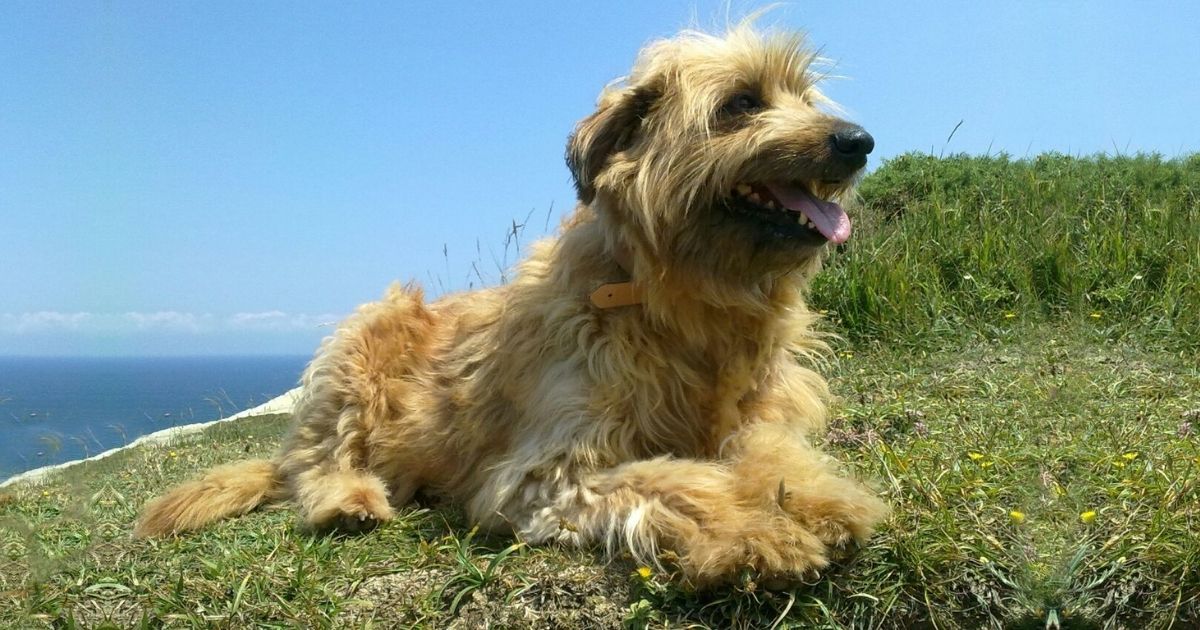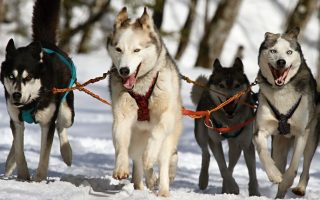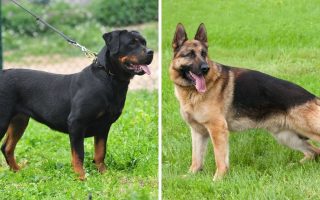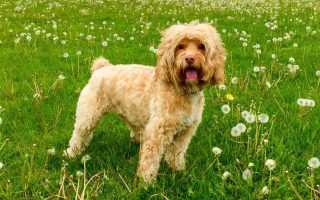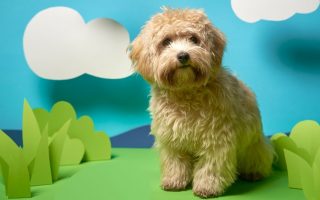The Basque Shepherd Dog breed originated from the Basque country located in the northern region of Spain.
Initially used as sheepdogs to guard sheep and other livestock, this old breed is a working dog with the ability to get along with kids and adjust to the contemporary family way of life.
The Basque Shepherd Dog is a medium-sized breed that demands a strong and competent owner to fully drill out its potential due to its super high energy level.
This article assists in exposing the Basque Shepherd Dog facts, breed information, history, behavior, temperament, grooming, and all of which to look out for.
Key Basque Shepherd Dog Facts & Information
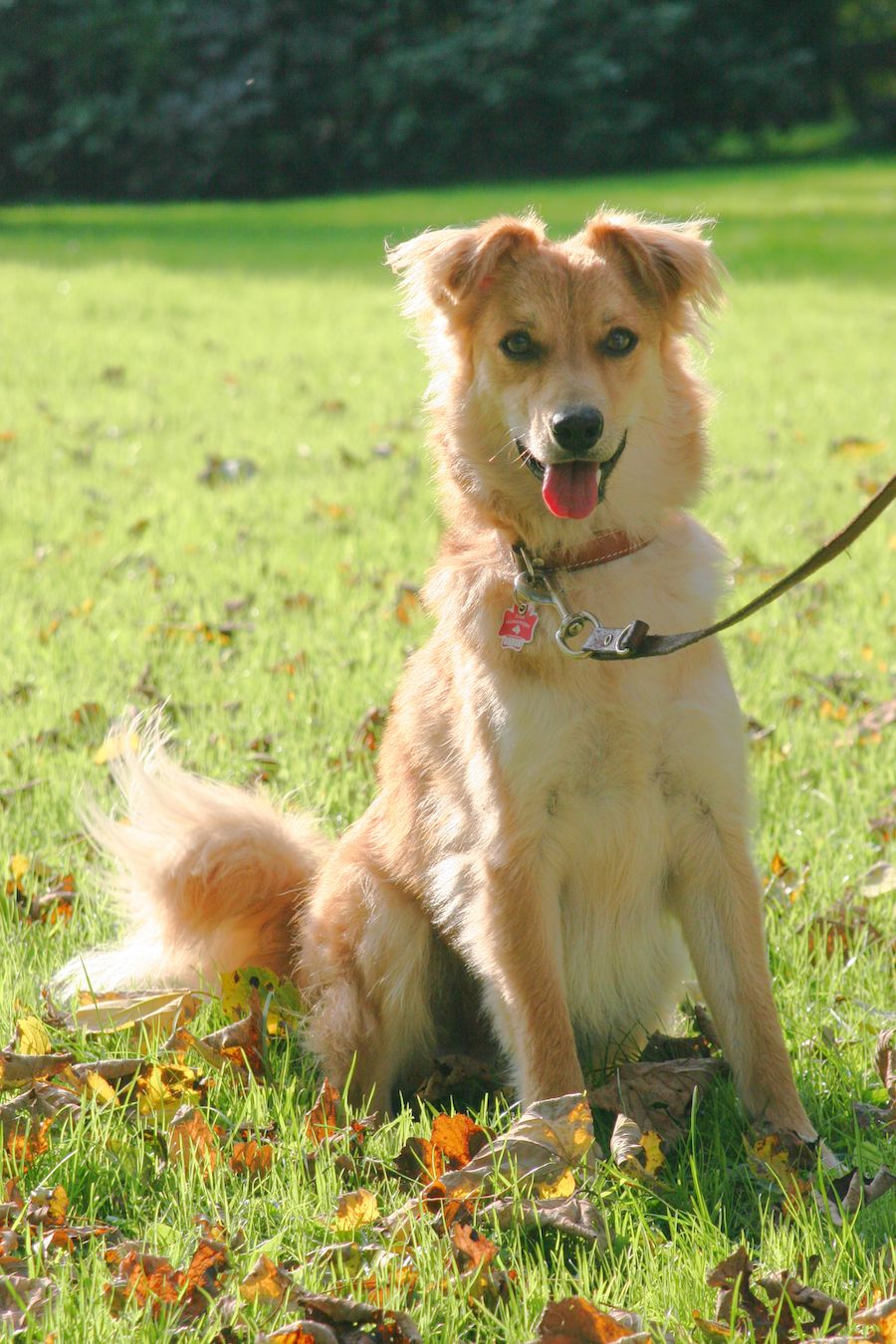
| Dog Breed Group | Herding Dogs |
| Height | 18 to 25 inches (Iletsua), 18 to 24 inches (Gorbeiakoa) |
| Weight | 37 to 73 pounds (Iletsua), 37 to 79 pounds (Gorbeiakoa) |
| Coat | Fairly drawn-out bumpy and thick (Iletsua), fairly drawn-out, fluffy and delicate (Gorbeiakoa) |
| Color(s) | Pale brown and red (Iletsua), beige and cinnamon (Gorbeiakoa) |
| Life Expectancy | 12 to 15years |
| Temperament / Behavior | Peaceful, Sociable, Cheerful, Strong, Friendly, Calm |
| Origin | Northern Spain (Basque Country) |
| Bred For | Herding, guarding of livestock and farmhouses, companionship |
| Nickname(s) / Other Name(s) | Basque Herder, Basque Sheepdog, Perro de Pastor Vasco (Spanish), Euskal Artzain Txakurra (Basque) |
| Recognized by the AKC, UKC | No |
Basque Shepherd Dog Characteristics
| Adaptability | Highly adaptable |
| Friendliness | Very friendly and good family dog |
| Kid-Friendly | Friendly and gentle around kids |
| Pet-Friendly | Gets along well with other dogs and pet |
| General Health | Prone to Hip Dysplasia and Ear Infection |
| Grooming Needs | Moderate grooming needs |
| Trainability | Easy to train |
| Intelligence | An intelligent breed |
| Playfulness | Extremely playful |
| Exercise Needs | High exercise needs |
| Energy Level | Super high energy level |
| Tendency to Bark | Average tendency to bark |
| Tendency to Drool | Moderate tendency to drool |
| Tendency to Snore | Moderate tendency to snore |
| Tendency to Dig | High tendency to dig |
Interesting facts about Basque Shepherd Dog Breed
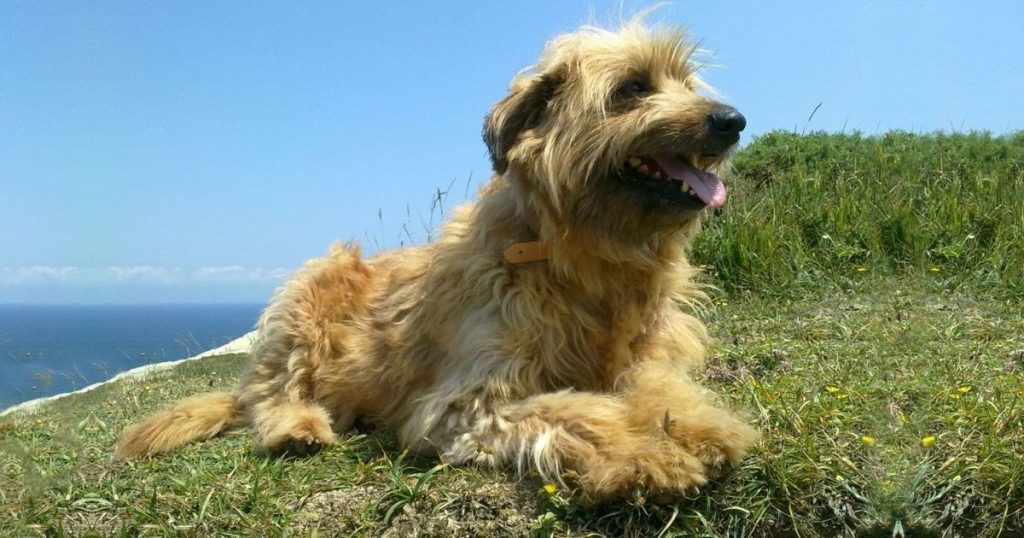
Fact #1: They are called “hyper” dogs
It is peculiar amongst several dog breeds to be energetic, but the Basque Shepherd is unmatched.
They don’t quickly feel exhausted, which birthed the title of being called “hyper” amongst many other dog breeds.
Fact #2: They have the Australian shepherd as their offspring
This is traced back to the mid-’90s when some of these dogs journeyed with their owners from the Basque Country to America in search of work.
Some of the Basque Shepherd Dogs were opportune to mate with resident American dogs. The offspring are said to be Australian Shepherd Dogs.
Fact #3: They make one of the best family pet dogs
While other dog breeds get to blend in with family life, the Basque Shepherd Dog fits into this life without much stress.
They enjoy spending time with family even though they are excellent herders.
Fact #4: They are naturally occurring breeds
There have been no records of cross-breeding between other breeds to produce the Basque Shepherd Dog.
Unlike many other dog breeds, the Basque Shepherd is believed to have occurred naturally.
The Basque Shepherd’s existence was not selectively determined to possess certain factors or qualities.
Basque Shepherd Dog History & Origin
The Basque Shepherd Dog is a dog breed that belongs to the herding class with its origin from the Basque Country.
Traditionally, it is known as “Euskal Artzain.” It is presumed that this dog breed is one of the oldest breeds in the world.
Evidence showed that the leftovers of what is assumed to be the predecessors of modern-day Basque Shepherd Dog were discovered in a 120 centuries old cave from the stone age period.
This information has aided the underground work of historiographers exploring the people of the Basque country.
They were able to decipher that these people were shepherds from the kind of dogs they operated with.
Around the year 1952, a bill authorized foreigners to get into America if there was a job vacancy.
Some of these Basque shepherds and their dogs went across the country to Western America in search of work.
These dogs were inescapably bred with American dogs to produce the known Australian Shepherd.
The Basque Shepherd dog breed, according to oral history, is of two groups;
The Iletsua: This is the bumpy and thick-haired type of the Basque Shepherd Dog. They usually possess the pale brown and red color with their ears not fully upright.
They are usually less weighty compared to the Gorbeiakoa and tend to be more protective of their territory.
The Gorbeiakoa: This type of Basque Shepherd Dog is more fluffy and delicate, possessing the beige and cinnamon color.
Their ears are more upright, and they qualify as more sociable than the Iletsua.
Either of these breeds is yet to be recognized by the American Kennel Club.
However, their American offspring—the Australian Shepherd—was acknowledged as one of the most popular dogs in America by the American Kennel Club in 2016.
Basque Shepherd Dog Temperament, Behavior & Intelligence
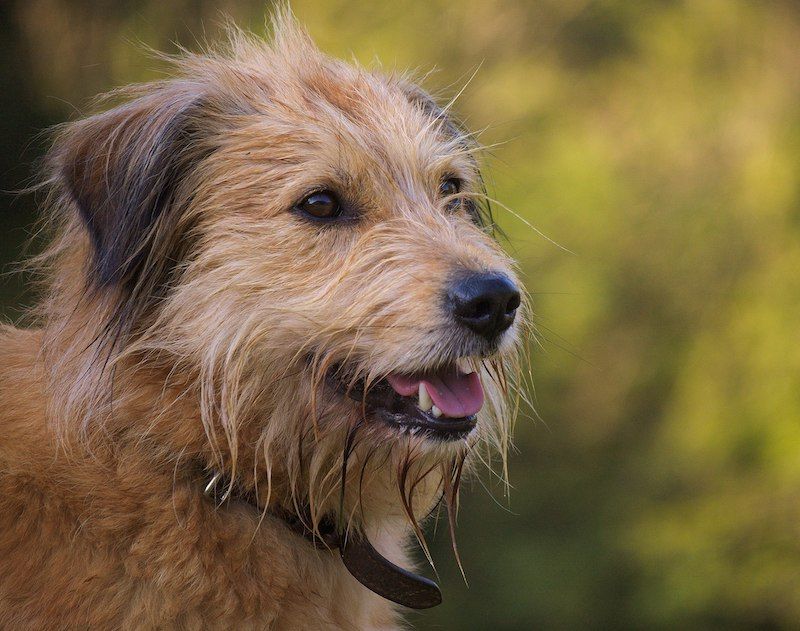
The Basque Shepherd Dog is an incredibly quick-witted dog breed that comprehends fast.
Their active nature makes them enjoy the outdoor lifestyle of constantly defending their area.
This is simply an obsession cultivated from their herding days and has become almost impossible to let go of.
They are super active, playful with the constant zeal to cheer their owners. They are cautious of strangers but can loosen up once safety is sensed and assured.
Their matchless energy requires a tough hand to drill them into becoming the best of themselves.
Is Basque Shepherd Dog a good family dog?
Yes! The Basque Shepherd Dog makes a perfect family dog. Although history backdates them to be good shepherd dogs protecting livestock, they enjoy spending time around their human family.
Is Basque Shepherd Dog good with kids?
This dog breed possesses the outstanding energy that makes them playful enough to get on well with kids.
Safety measures should be put in place when kids play with such hyper dogs to avoid mishaps.
Is Basque Shepherd Dog good with other dogs?
Yes, the Basque Shepherd Dog gets on well with other dogs, especially those with similar extra energy levels.
Although originally trained to protect livestock, they make good companions and are friendly.
Is the Basque Shepherd Dog good with pets?
The Basque Shepherd may need timely acquaintance to get along with other pets as they do not easily let their territory be invaded.
Male vs. Female Basque Shepherd Dog
Choosing between a male and female Basque Shepherd is a matter of personal preference.
The male and female Basque Shepherd Dog possess a slight difference in height and weight, having similar looks and traits.
The male breed weighs slightly higher and grows a bit bigger than the female breed.
The male height measures around 52 to 58cm while the female, which is clearly smaller, measures 46 to 53cm.
They are both brawny average-sized dog breeds with a normal-length coat, rectangular body frame, and a black nose.
Related: Dog Breeds With Pink Noses And Why They Have It
Caring for a Basque Shepherd Dog
Caring for your Basque Shepherd Dog simply indicates satisfying their various needs to ensure your canines live a comfortable and healthful life.
These needs include their food and diet, exercise, training and socialization, grooming, and overall health.
Basque Shepherd Dog Food and Diet
This dog breed is medium to large-sized. Thus, you should feed them with highly nutritious food suitable for their size.
You should measure their meals appropriately to suit the dog size to avoid overeating or under-eating.
You may want to divide the dog’s food portion into two meals daily. These meals are advisable to be rich in protein and fiber rather than meals with empty calories.
Related: Best High Fiber Dog Food Brands
Basque Shepherd Dog Exercise
The Basque Shepherd is undoubtedly not the type to lie around as it is always dedicated to exercise.
This dog breed fits nicely as a pet to a family that enjoys outdoor activities as they rarely get depleted.
The countrified setting is ideal for this dog breed, where they wander freely in the open space to their satisfaction.
Frequent strolling and exercises involving gaming activities can be a substitute for their rural roaming.
These exercises are necessary to avoid boredom which may affect the attitude of your dog.
The Basque Shepherd Dog will be easy to control to obey orders if properly trained.
They can be used for different activities like herding, and if handled by a good trainer, they can exhibit tremendous abilities.
You should accompany early training days with caution as this shepherd dog is known to conquer fears and go extreme.
Basque Shepherd Dog Grooming Needs
Coat Care
The Gorbeiakoa possess a more fine and delicate coat than the Iletsua, making it the easier type to groom.
Generally, this dog breed coat should be kept tidy with a firm brush with strands.
Bathing
Bathing frequently won’t be ideal, especially for some dogs that do not wander too often to get all muddy.
For those that wander regularly, it is vital to wash them up regularly to keep them clean.
It is necessary to wash your dogs within a period of about 5 to 7 weeks to avoid any skin defect. For puppies, they can be given a bath from three months.
Ear Cleaning
An ear infection is one challenge peculiar to this dog breed and many other breeds as well.
As such, you should regularly clean, massage the ear base, and use a cotton pad to take out all residue regularly, keeping the ears as dry as possible.
A checkup every other week is needed to spot any ear defect early for treatment.
Paws/Nails Trimming
Their nails need to be clipped regularly as they are always around humans and even children. Nail cutting should be done with care to avoid pain or any injuries.
Teeth Brushing
Teeth brushing should be done regularly backed up by a particular diet feed concentrated on the mouth’s health.
Also, a professional dental cleanup is not a bad idea for your Basque Shepherd Dog once in a while.
Eye Cleaning
This generally involves cleaning the regions around the dog’s eyes and not inside the eyes themselves.
The regions around the eyes can be dabbed with wipes. Removing muck with an eye comb instead of using the hands is necessary also.
Basque Shepherd Dog Health Conditions
The Basque Shepherd is a strong, extremely energetic dog breed with less tendency to be affected by genetically related ailments, unlike most others.
With proper care, they can live for 12 to 15 years, all things being equal.
They are mainly susceptible to health conditions like hip dysplasia, ear inflection, and bloat.
Hip Dysplasia
This health condition is prevalent in many dog breeds. It affects the joint around the hip, causing severe discomfort and inability to move easily.
This condition is usually survived with treatments and workout routines to curb overweight. Surgery is required for severe cases.
Ear Infection
The Basque Dog breed is one of those breeds possessing flabby ears, and they are liable to chronic ear infections throughout their lifetime.
The inability of air to gush within the ear pit allows for yeast and bacteria to grow.
Cleaning the ear regularly and maintaining its dryness helps to stave off this infection.
Bloat
This is simply a build-up of air in the abdomen or intestine. It can be very distressing and uneasy, causing the dog to drool and breathe heavily.
This condition requires the attention of your family veterinarian. A pipe can be inserted into its abdomen to relieve the difficulty.
An unattended case of bloat may lead to the death of the dog.
FAQs
Is a Basque Shepherd Dog right for you?
This dog breed is strong, super energetic, and a good family dog. If this is what you are looking out for, then this breed is for you.
What are Basque Shepherd Dogs known for?
These dogs are shepherd dogs known for their earlier herding abilities. They make good companions as well.
How big do Basque Shepherd Dog get?
They are average-sized dog breeds. An adult male Basque Shepherd Dog weighs around 73–79 pounds with a height of 24–25 inches, while the female weighs approximately 64–66pounds with a height of about 23 inches.
This is dependent on if the dog is an Iletsua or a Gorbeiakoa.
Do Basque Shepherd Dogs like to cuddle?
Although highly active breeds, the Basque Shepherd Dogs love to spend time around family, especially children, making them relatively cuddly.
Is it hard to train a Basque Shepherd Dog?
The Basque Shepherd is not a difficult dog breed to care for. However, it might be quite a handful during training, requiring a tough pet parent who can put in the work.
How long do Basque Shepherd Dogs live?
The Basque Shepherd Dog has a lengthy lifespan for its size. They are expected to live around 12 to 15 years.
How much is a Basque Shepherd Dog Puppy?
This dog breed found mainly in Northern Spain costs about $1,200 to $1,800 on average for a pup.
Do Basque shepherds shed?
The Basque Shepherd Dog has a relatively long and smooth coat, making it easy to groom. It is essential to brush their coat to avoid tangling and help to control shedding.
Can you leave the Basque Shepherd Dog home alone?
These dogs tend to bond well with their owners and would not enjoy being left at home alone. This can create tension for them.
Does the Basque Shepherd Dog have a high prey drive?
They have a moderate prey drive but can be heightened through training if necessary.
Is the Basque Shepherd Dog a good guard dog?
They are moderate guard dogs that can alert you when something unusual is sensed, but this is not part of their primary duty.
Wrap Up
Hopefully, these Basque Shepherd Dog facts and information will help you determine if this breed is right for you.
The Basque Shepherd is a good family dog and can be recommended to anyone used to high-energy dogs. They are loyal dogs that try to make their owners happy.
Their personality, in general, is something that qualifies them as a good companion for exercise, training, and gaming.
Related:

